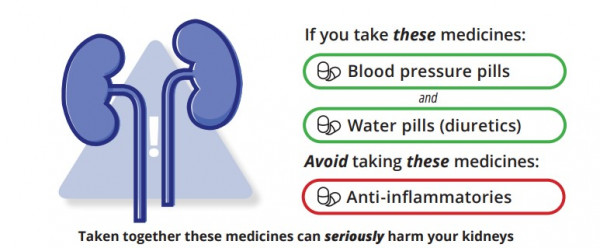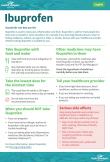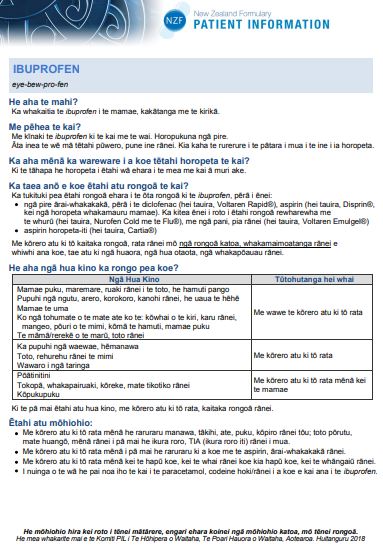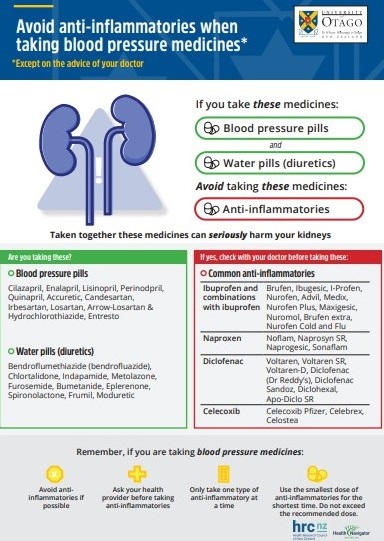Note: The information on this page is for ibuprofen in adults. For information about ibuprofen in children, see ibuprofen in children.
Ibuprofen belongs to a group of medicines known as non-steroidal anti-inflammatory drugs (NSAIDs).
It's used to treat different types of pain such as headache, migraine, dental pain, back pain or muscle pain, and pain from injury. Read more about pain and pain relief medication. It also helps to ease redness and swelling, and to treat fever.
Ibuprofen is available in different brands and strengths
In Aotearoa New Zealand ibuprofen is available in many forms such as capsules (100 or 200 mg), immediate-release tablets (200 or 400 mg), slow-release tablets (800 mg) and liquid suspension (100 or 200 mg in 5 mL).
There are also ibuprofen melt-in-your-mouth tablets, skin patches and topical gels to apply to skin over the painful area. Read more about NSAID gels.
The lower strength (200 mg) tablets can be bought from a supermarket or over-the-counter from a pharmacy. The higher strength tablets (400 mg, 800 mg) tablets are only available on prescription written by a prescriber.
Ibuprofen is commonly known by different brand names, eg, Nurofen®, Advil®, I-Profen®, Brufen® and Fenpaed®.
| Ibuprofen is also contained in some other combination medications such as: | |
|
|
Factsheet: How to take ibuprofen
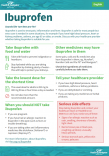
|
Ibuprofen factsheet
Healthify He Puna Waiora, NZ, 2022 English [PDF, 290 KB]te reo Māori [PDF, 241 KB] Samoan [PDF, 219 KB] Tongan [PDF, 253 KB] Chinese (simplified) [PDF, 501 KB] Cook Islands Māori [PDF, 1.4 MB] |



